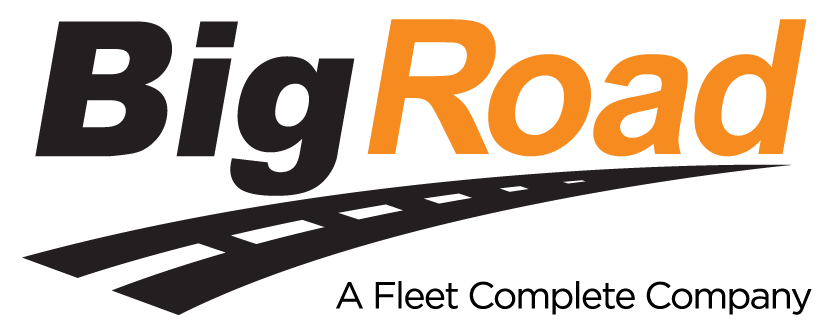
Regulations can get pretty confusing. It’s hard to know what applies to you. This is especially true for passenger-carrying drivers and fleets. The Federal Motor Carrier Administration (FMCSA) has stepped in to provide some help!
FMCSA Issues Guidance
 Regulations for passenger-carrying commercial motor vehicle (CMV) drivers are very different than rules for property-carrying CMVs. Earlier this week the FMCSA released guidance to clear up confusion for passenger carriers.
Regulations for passenger-carrying commercial motor vehicle (CMV) drivers are very different than rules for property-carrying CMVs. Earlier this week the FMCSA released guidance to clear up confusion for passenger carriers.
The FMCSA provided specific information on rules for hotel, employer, education, and multi-modal passenger-related transportation. Here’s a breakdown of what you need to know to make sure you’re running in compliance.
Determine If You’re Subject to Regulations
The first step is to determine if you need to comply with commercial regulations. There are two key operating factors that determine this: interstate commerce and for-hire transportation.
- Passenger carriers are in interstate commerce when transporting passengers:
- Across state lines
- Between the U.S. and a U.S. territory or possession
- From the U.S. through a foreign country to another place in the U.S.
- From the U.S. to another country
- Unless subject to an exemption, when a passenger carrier is compensated for transporting passengers it is considered for-hire
Review Guidelines for Your Industy
Next you’ll want to review the regulations for your specific industry. We’ve covered some of the most confusing rules for each transportation category below:
 Hotel-Related
Hotel-Related
The majority of hotels provide a shuttle service (van or bus) for their guests to get to local businesses and airports. You’re probably not transporting guests interstate commerce but you could be considered for-hire.
If the hotel is receiving indirect compensation for this service it could be considered payment for transportation. This would include collecting a payment for the room even if there is not a specific fee for the shuttle. Learn more about hotel-related transportation rules here.
Employer-Related
In some cases an employer may use company vans or buses to transport employees to a worksite. Again, the employer likely isn’t operating interstate commerce. The employer would be considered for-hire interstate if they:
- Collect fees from the employees’ salaries for this transportation in another State
- Transport employees in company-owned vehicles to a casino or amusement part in another State on a weekend and collect fuel money for providing the transportation
- Collect blanket payments from employees for a company retreat in another State to cover the expenses (stay, food, entertainment, and transportation) in company-owned vehicles
There are a number of exemptions that employers can take advantage of. Learn more about the exemptions here.
Education-Related Vans and buses are regularly used to transport students for educational purposes. This category is the most subjective based on number of passengers, size of vehicles, and distance travelled. Take a moment and review all of the information outlined on the FMCSA website. Some important rules to note are:
Vans and buses are regularly used to transport students for educational purposes. This category is the most subjective based on number of passengers, size of vehicles, and distance travelled. Take a moment and review all of the information outlined on the FMCSA website. Some important rules to note are:
- Private schools and universities that are
not for-hire are categorized as private motor carriers of passengers (businesses) as their transportation has a commercial purpose but is not available to the public - Payment of passenger transportation from a general budget source, such as a university endowment, is not considered compensation for transportation
- When transporting only school children and school personnel, in interstate commerce from home to school and school to home, you are not required to comply with most safety regulations
Faith-Based Organization-Related
Many churches and faith-based organizations have vans and buses used for passenger transportation to events. You are considered to be for-hire if you collect any fees from parishioners for transportation and lodging for a church retreat, volunteering, or other events. There are a number of exemptions available for faith-based organizations which can be reviewed here.
Multi-Modal Passenger Transportation It’s important to note that passenger transportation can be in interstate commerce without crossing a State line when it comes to multi-modal transportation. If a trip starts in one State and ends in another with multiple modes of transportation (plane, train, shuttle, etc.) involved, every part of the trip is considered interstate commerce if the trip is pre-arranged.
It’s important to note that passenger transportation can be in interstate commerce without crossing a State line when it comes to multi-modal transportation. If a trip starts in one State and ends in another with multiple modes of transportation (plane, train, shuttle, etc.) involved, every part of the trip is considered interstate commerce if the trip is pre-arranged.
The complete regulatory guidance published by the FMCSA can be viewed here. The FMCSA is encouraging the public to share their feedback with them during the current comment period (next 60 days).
How BigRoad Can Help
As you can see, the rules and regulations imposed on passenger carriers is largely based on the type of driving you do. If you’re running outside of regulations and exemptions, you may be required to track your hours of service (HOS). See how easy tracking your hours can be with BigRoad! Download the BigRoad Mobile App electronic logbook today for free!
{{cta(‘64777feb-9e9a-4a8b-9fe7-dc2876c12054′,’justifycenter’)}}
